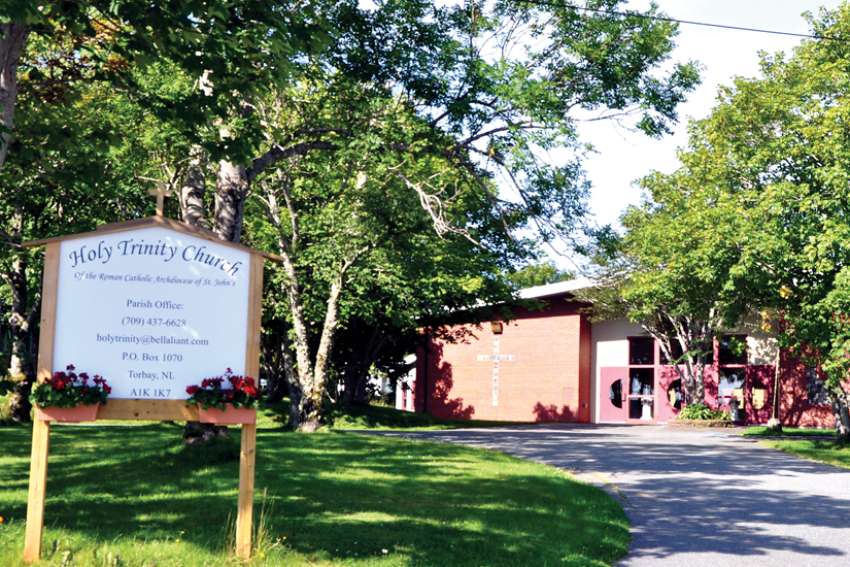The church was one of the properties put up for sale as the archdiocese was forced to restructure following the Newfoundland Court of Appeals’ 2020 decision that found the archdiocese vicariously liable for the atrocities committed at the Mount Cashel Orphanage in St. John’s — operated by the Christian Brothers of Ireland — in the 1940s, ’50s and ’60s. The court ordered the archdiocese cover the settlement to the survivors after the Christian Brothers went bankrupt. Selling a number of church properties became necessary to produce the financial compensation.
The $450,000 figure was decided upon following negotiations with Ernst & Young, the firm overseeing the ongoing restructuring of the St. John’s archdiocese.
Holy Trinity congregants are charged with the task of raising 50 per cent of the cost — $225,000 — by Nov. 30, the closing date of purchase. The ARC would then supply the remaining half of the bid.
Tony Pollard, a Holy Trinity parishioner since 1989, told The Catholic Register that the fundraising process is off to a solid start with “just over $100,000” in pledges made by Oct. 17. Two weeks prior, the campaign had $45,000 committed.
“We have done a letter-writing campaign to the general populace,” said Pollard, who is also a representative on the Torbay town council. “We have had individuals and businesses pledge money. We are still at the initial stages.”
More fundraising initiatives are expected to be announced soon.
During stage one of the bidding process, Holy Trinity parishioners failed to submit a bid by the June 2 deadline.
“There was always desire to save the parish, but no one really stepped up in the first round of the tender process,” said Pollard. “We were kind of behind the eight-ball on that. And when no one stepped forward through the tender process to buy the church, we saw the urgency to get involved.
“We then reached out to the real estate agent to tell them we were interested and to find out what we would need to do. So, then we struck up a committee to move forward. We then began discussions with the archdiocese, and they indicated they had some donors who may be able to support us in the interim and back us until the church is paid off.”
An agreement was struck between the steering committee and the ARC that the former will pay back the $225,000 contributed by the latter. Church ownership will then transfer to a corporation being established by the parish community.
Pollard offered a couple reasons why the save the parish effort was slow to mobilize.
“I think there is a lot of — the archdiocese uses the word hurt — animosity, or anger really against the Church and how things happened. Churches were essentially bought and built by parishioner contribution dollars, and they should have been sheltered away from the actual settlement. Not that anybody didn’t want to see the victims be compensated, just that they thought the Vatican should kick in and that the (archdiocese) shouldn’t sell what the individual parishioners put into the church,” he said.
“And there was really little direction in terms of how to go about doing this, so it was up to the parishioners’ hands. ‘You’re on your own. You go out and form a committee to save your church.’ There wasn’t a lot of overall guidance at the beginning.”
Pollard cites the newness of the Holy Trinity structure — the current building was consecrated in 1992 — compared to older churches in the region, and the larger populace of Torbay (7,852 according to 2021 town census data) as two reasons why the archdiocese, contending with a perennial shortage of priests, was keen to keep this parish operating.
Holy Trinity has been welcoming parishioners from St. Agnes and St. Michael’s Parishes from the municipalities of Pouch Cove and Flatrock, respectively, as both churches closed earlier during the restructuring. Fr. Paul Lundrigan, the pastor for Holy Trinity, also served St. Agnes and St. Michael’s while both were in operation.
Parishioners from Holy Rosary Parish in Portugal Cove-St. Philips, a community located roughly 20 minutes away, are also being encouraged to join Holy Trinity after their church closed on Oct. 16.


